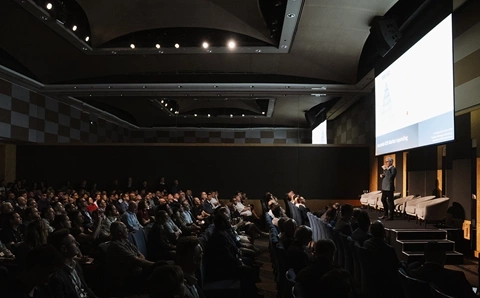The Federal Government's Product Stewardship Bill to foster better management of waste generated by discarded products including PCs and TVs, has been passed by the house of representatives.
The first fruits were the National Television and Computer Product Stewardship Scheme which the Government said would increase the recycling rate for TVs and PCs to 80 percent over 10 years.
But it will be a steep climb with environmental group the Boomerang Alliance reporting in 2009 that Australia's e-waste problem was at a “tipping point” with some 234 million computers, phones, TVs and other items already in or about to join mountains of material.
Parliamentary Secretary for Sustainability and Urban Water, Senator Don Farrell said that key to the success of the legislation would be a national network of collection and recycling services to be rolled out by the electronics industry across over five years.
“Product stewardship is about everyone involved in the production, supply and use of products, sharing responsibility for the environmental impacts throughout a product’s life – from production through to disposal,” Senator Farrell said.
Technology companies have thrown their weight behind the bill, including Japanese electronics giant Panasonic.
It said engineers from its Eco Technology Centre in Japan would help the Government in the early stages of the scheme’s implementation as the vendor wrote an education program to support it.
“E-waste has emerged as one of the most significant environmental issues of modern times with more than 1.5 million televisions ending up in landfill each year,” said Panasonic Australia managing director Steve Rust.
Panasonic was a foundation member of the industry lobbying group Product Stewardship Australia that played a key role in the development of the legislation.
Three weeks ago, Customs and Farrell’s department were embarrassed by revelations that four ships were intercepted attempting to smuggle e-waste from Australia, which would likely have ended up in illicit processing plants in South-East Asia.
They announced an investigation but have revealed no details.
It prompted renewed calls for Australia to write better policies governing recycling, which industry observers scored well below those in Europe and the US. And it raised questions as to whether Australia was in breach of international trade agreements.
How far the new legislation will go towards solving Australia’s e-waste conundrum remains to be seen as the country’s love affair with technology continued to drive up the mountains of discarded equipment.
For example, it made no mention of one of the fastest-growing categories of e-waste: mobile phones.
Although the national telco and mobile phone industry-funded recycling program MobileMuster was reportedly doing a good job, it was unclear if the Government would lend a hand or had plans of its own.
Kumar Radhakrishnan, vice-president of the world’s biggest recycling company Simms warned that the enormous quantities of electronic and electrical waste accumulated in Australia would likely see an increase in the illegal exporting of TVs, computers and mobile phones.
He said Simms received up to three calls a week from people buying electronic waste. Only since staff were instructed to mention enforcement agencies did the calls decline.
“The biggest problem we have is there is no legislation to ban from landfill or make it mandatory to recycle electronic goods,” Radhakrishnan says. "In Australia, you can do what you want.”
E-waste smuggling was emerging as a global problem especially with the rising market value of recoverable materials.
The higher standards of living in developed countries mean that more devices were thrown on the scrap heap. But tighter safety regulations mean that the only cheap way to recover the gold, platinum, silver, copper, steel and aluminium, glass and plastics was to exploit cheap labour in poorly regulated countries.
Last month, the BBC reported on the astronomical quantities of e-waste generated in Britain, noting that much of it was ending up in mass-dumping grounds in Africa and where lax regulations had created worrying environmental and health risks.
People with information about dubious recycling should contact the Hazardous Waste unit on 1800 803 772 or email: hwa@environment.gov.au.




.png&h=142&w=230&c=1&s=1)

.jpg&h=142&w=230&c=1&s=1)





.jpg&w=100&c=1&s=0)
_(8).jpg&w=100&c=1&s=0)









